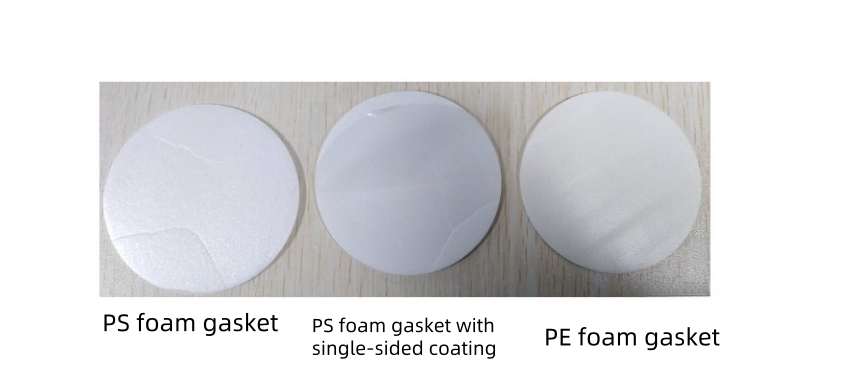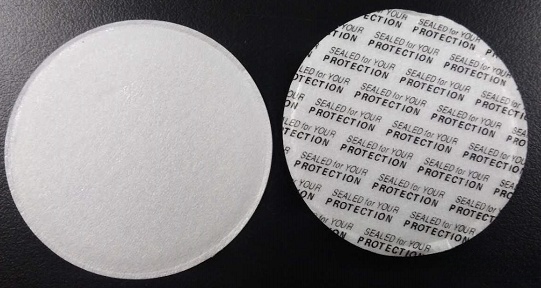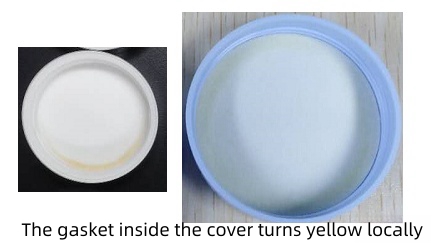

The Use of Gaskets in Cosmetic
Gaskets play an essential role in cosmetic packaging, ensuring that products such as s, s, and s remain sealed and secure. Various types of gaskets, including PE, PVC, and PP gaskets, are used for bottle mouths, while sealing gaskets such as aluminum foil, PE aluminum foil, and pressure-sensitive gaskets help prevent leakage. This article focuses on the inner gaskets used in cosmetic packaging, particularly those for cream bottles, like PE foam gaskets, PS foam gaskets, and pressure-sensitive gaskets.
The gasket inside the cosmetic packaging cap serves primarily to seal and block. When the bottle cap is tightly closed, the gasket isolates the product inside from external contaminants, preserving its integrity. This prevents air and moisture from entering, which can otherwise degrade the product over time. In the case of bottles, the gasket also protects the bottle neck from damage, providing cushioning against impacts that could cause breakage.

PE foam gaskets, made from polyethylene foam sheets, are commonly used in cosmetic packaging. These gaskets offer excellent sealing properties due to their moderate hardness and strong cushioning effect. Key characteristics include:
A pearlescent luster for a clean and premium appearance.
Independent pores, ensuring durability and moisture resistance.
High resistance to corrosion, water, and environmental factors.
Strong vacuum retention, making it ideal for preserving products in skin care bottles or glass and plastic bottles.
PS (polystyrene) foam gaskets are made from PS foam sheets produced via high-foaming molding techniques. These gaskets are lighter and more cost-effective but offer significant benefits, including:
Low water absorption and resistance to vibration.
Good thermal insulation, moisture resistance, and impact resistance.However, PS foam has limitations, such as rough surfaces that aren’t ideal for printing, making it less suitable for high-end cosmetic packaging like atomizers or luxury lotion pumps. It is often used for mass-market products in plastic bottles or jars.
Pressure-sensitive gaskets, often referred to as self-adhesive gaskets, are an innovative sealing solution for cosmetic packaging. These gaskets are designed to bond to the bottle mouth when the cap is tightened, providing a secure seal without the need for additional equipment. Advantages of pressure-sensitive gaskets include:
Ease of use, as they only require manual pressure to adhere.
Ability to print graphics or brand logos directly on the gasket surface.
Excellent sealing properties, especially in packaging formats like glass bottles and plastic bottles.
These gaskets are widely used for powders, creams, and pastes, often employed in cosmetic packaging like skin care products and lotions.

When selecting gaskets for cosmetic packaging, compatibility testing is essential to avoid issues such as material degradation or color changes. For example, when cream or serum overflows from the bottle and contacts the gasket, the gasket may discolor or lose its sealing effectiveness. This is particularly common in products with high oil content, like some creams or serums, which may cause yellowing of the gasket material.
Testing compatibility ensures that gaskets do not degrade over time, preventing product complaints or returns. In such cases, it may be necessary to switch to a different gasket material or coat the gasket with a protective layer. Suppliers should be consulted to ensure the gasket materials are compatible with the product formula, ensuring a long-lasting seal and maintaining the quality of the cosmetic packaging.

Gaskets in cosmetic packaging, whether used in glass or plastic bottles, are crucial for maintaining the quality and efficacy of products like lotions, serums, and creams. They ensure that the contents remain sealed, uncontaminated, and properly preserved. Selecting the right type of gasket—such as PE foam, PS foam, or pressure-sensitive gaskets—depends on the product's characteristics and packaging requirements. Proper gasket compatibility testing is vital to avoid issues such as discoloration or leakage, ultimately ensuring a better consumer experience and maintaining brand reputation in the competitive world of cosmetic packaging.





